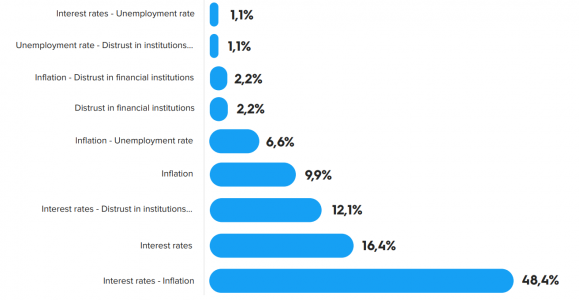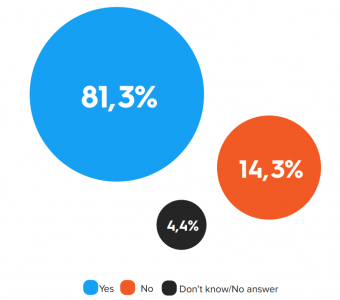2022 will be remembered as a challenging period for financial markets, characterized by the ineffectiveness of traditional strategies and notable losses in global stock indices. Amidst this scenario, portfolio managers were forced to face the sale of positions backed by illiquid assets, highlighting the critical need for adaptability in investment management.
The rapid rise in interest rates in the United States and the Eurozone, driven by the urgency to curb runaway inflation, became a fundamental trigger for financial challenges. Additionally, the threat of recessions in major developed economies and geopolitical uncertainty created a landscape full of uncertainties for portfolio managers.
In this context, the 1st Report of the Asset Securitization Sector, sponsored by FlexFunds, serves as a tool to understand how financial advisors in different regions deal with the complexities of the current financial environment. The report analyzes short-term expectations, challenges in portfolio management, and key trends in the asset securitization sector through a series of questions directed at industry experts from over 80 companies in 15 countries in LATAM, the United States, and Europe.
In situations of uncertainty and volatility, portfolio management must seek the redistribution of financial resources to minimize risks and maximize returns. Portfolio diversification among different assets, sectors, and industries is a traditional strategy, but it is crucial for clients to understand the risks associated with each financial product. A delicate balance between risk and return, along with periodic rebalancing, becomes essential to maintain long-term goals and strategies.
Macroeconomic variables play a fundamental role in investment decision making. Economic growth, interest rates, inflation, the labor market, and government policies directly impact the health and performance of an economy. In this regard, the study conducted in this area has been broken down into four questions:
What variables will have the greatest influence on the markets in the next 12 months?
The results in Figure 1 show that almost half of the respondents believe that the main variables influencing the markets in the coming months will be interest rates and inflation, with interest rates being the primary variable considered by 78% of the sample, followed by inflation at 64.8%. Distrust in financial institutions is a factor considered by 17.6% of respondents.

Thus, the main variables to watch in the coming months are inflation and the evolution of interest rates until the end of their upward cycle.
Considering that uncertainty is an inherent characteristic of financial markets, experts were asked if they believe investors are demanding more conservative positions. 81.3% of respondents believe that their clients are indeed demanding more conservative positions, compared to 14.3% who disagree with this statement, as seen in the following graph:

The situation in the financial markets during the year 2022/23, with losses in major indices and returns on stocks, investment funds, and assets, has generated an increase in perceived risk, increasing aversion to it. Both portfolio managers and investors are more inclined to modify their investment strategies to redistribute their portfolios towards more conservative positions.
The 1st Report of the Asset Securitization Sector provides portfolio managers with insights based on the survey results from nearly a hundred industry experts, where their expectations about interest rates and a possible recession in the United States over the next 12 months are also addressed. Download it now to learn their response and the main trends within the sector: Will the 60/40 model continue to be relevant? Which collective investment vehicles will be more used? What is the expected evolution for ETFs? What factors to consider when building a portfolio?




